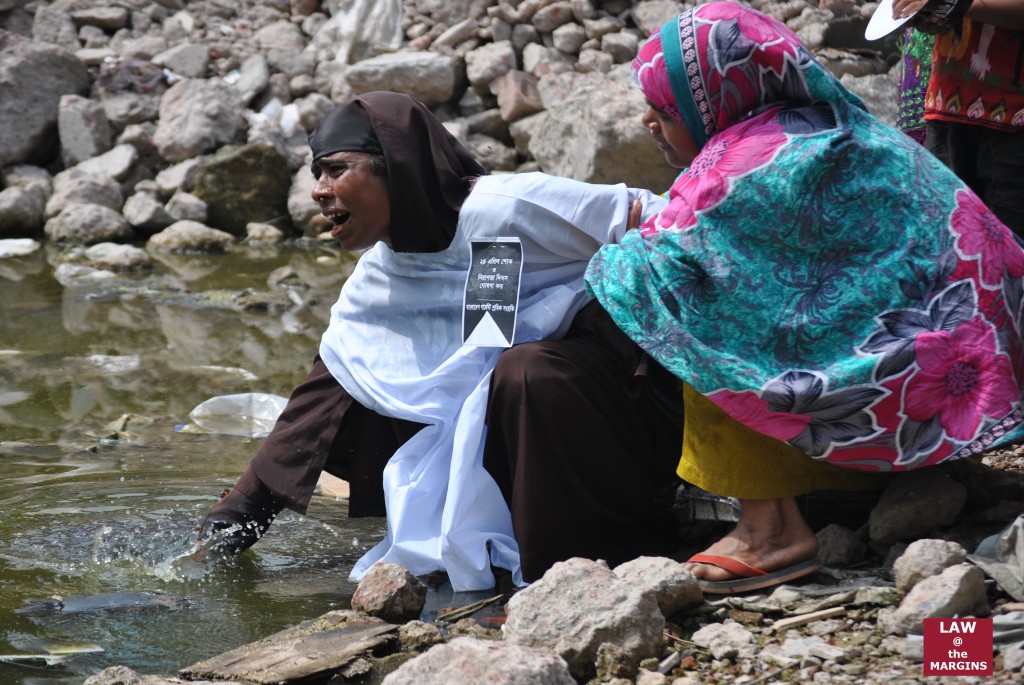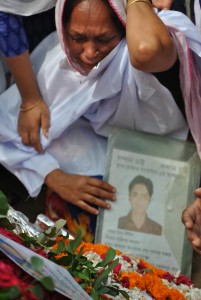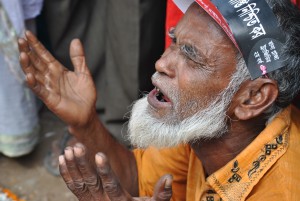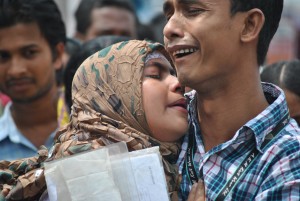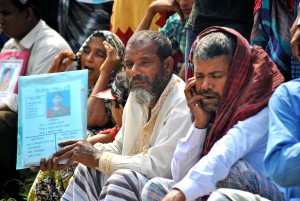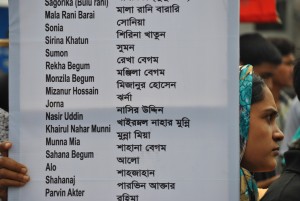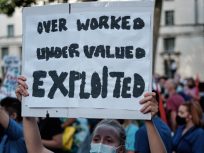Leading up to the second anniversary of Rana Plaza factory building collapse, I was thinking of what to write. Each time, I sat down to pen something I was reminded of the immense, heart wrenching pain of workers and their families. My mind failed me, and all I could do was to sit with the pain, to feel the intensity, the truth of which I would never know. The death toll was 1,138, and over 2,500 were injured. Just five months before Rana Plaza, in the Tazreen Fashions factory, 112 workers were killed and others injured. Behind each number is a story: a mother who lost her daughter, a child who has lost his mother, and a wife who has lost her husband. I tried to imagine their faces through the photos carried by their loved ones. I want to sit with this feeling and images. Only then, can I feel the urgency that something needs to be done. I fear with the passage of time, that urgency that something needs to change drastically in the garment industry, may pass.
The factories at Rana Plaza that supply global brands revealed not only the exploitative working conditions of multinational corporations, but the level of our inhumanity. There are so many demands to be made, and so many issues to raise regarding the fact that not much has changed in the two years, efforts to raise and distribute compensation to victims remain a challenge, and efforts by workers to improve their working conditions through unions are still thwarted. Economic violence is an abstract concept, and so is corporate human rights abuses, yet, they are fatal to the lives of working people and their children.
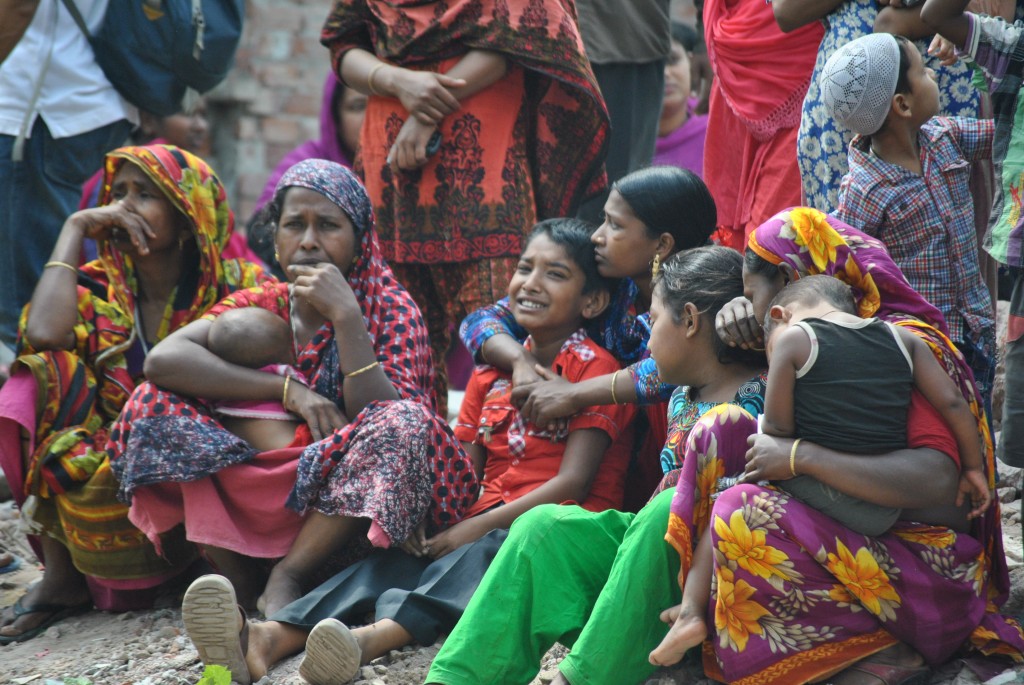
This morning, at the site of the Rana Plaza collapsed, I bore witness to the impact of that violence. We are in mourning. We are in anguish. We need to collectively feel that heart-wrenching pain. So, I felt that I would write about mourning and share my observations through my camera lens. Maybe, if I bring you the enormous grief of families, then, you will see a person, not a number. And maybe, just maybe, you will give the lives of Tazreen and Rana Plaza workers some meaning. If you do not see workers as humans, who feel, who cry, then, how can we even begin to speak about human rights.

